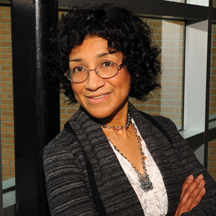Do Hearing Aids Work In Noise?

Difficulty understanding speech in background noise is usually the factor that brings patients to the audiologist for help from hearing aids. Patients with hearing loss often tell their audiologist that they have very little difficulty understanding conversation in quiet settings but they are completely lost when attempting to communicate in a large group or in a noisy room. Some prospective hearing aid users are skeptical and will say: “I’ve heard that hearing aids really don’t work in background noise. Is that true?” I have been asked this question frequently over the years and this article is designed as a response to that query.
The Problem of Hearing Speech in Noise
Before we talk about how hearing aids work in noise, it’s important to understand something about the process of hearing in noise. Research has shown that this ability to distinguish speech in noise declines with age even when hearing remains normal. This tells us that hearing loss alone is not the only reason we have difficulty hearing in background noise. We audiologists know that individuals with the same degree of hearing loss vary greatly in their ability to communicate in background noise. For some individuals, restoring audibility with a basic set of hearing aids is enough and they will do well in noisy environments. However, others with the same degree of hearing loss will have great difficulty in noise even when fit with appropriate amplification. Recent evidence from research suggests that these individuals who continue to struggle in background noise have a biological type of distortion within their auditory systems. These are the patients who tell us that their hearing aids make things louder in noise, but it’s not clear. So, how do we compensate for distortion that is going on inside someone’s auditory system? This has been a challenge to the hearing industry for many years.
How Hearing Aids Work in Noise: Then
Hearing aid manufacturers first attempted to address the problem of impaired hearing in background noise with directional microphone technology in the early 1970’s. Directional microphones are more sensitive to sound emitted from a particular direction (usually the front as opposed to the rear and sides). The problem with these early directional microphones was that they reduced audibility in general causing hearing aid users to miss speech directed at them from the rear or sides.
How Hearing Aids Work in Noise: Now
The advent of digital hearing aids in the late 1990’s greatly improved directional microphone technology. By 2001 research proved that directional microphones on hearing aids significantly improved speech recognition in noise for hearing aid users. Now in 2013 directional microphones work automatically when a hearing aid user is in noise. Digitalization of hearing aids provided a platform for multi-channel noise suppression to work with directional microphone technology to automatically optimize the audibility of speech in noisy environments. A recent advancement is wireless streaming between the two hearing aids on a patient. Wireless streaming permits both hearing aids to work together as a system to focus the directional microphones on speech closest to the patient even when speech is directed to a listener from the rear!
Do I Need All of Those Bells and Whistles?
If you suspect that you may have hearing loss and notice problems hearing in noise, the first step is to see an audiologist to have a comprehensive hearing evaluation that includes speech recognition testing in quiet and in noise. Only then can your audiologist counsel you appropriately. Even if hearing aids are recommended, take heart that you are living in this day and age of advanced hearing aid technology. These advancements are not just bells and whistles; for those who are struggling to hear well again they are the next best thing to a normal functioning auditory system.
So, do hearing aids work in noise? Do they ever!
For more information or to schedule an evaluation or treatment, contact the Audiology Department at Riddle Hospital.
Barbara J. Madden, Au.D.
Doctor of Audiology/Director
Catherine M. Marino, Au.D.
Doctor of Audiology
Denise E. Stewart, M.S.
Clinical Audiologist
Lisa C. Mackenzie, M.S.
Clinical Audiologist
RIDDLE HOSPITAL
Audiology &
Hearing Aid Center
1118 West Baltimore Pike
Suite 207
Media, PA 19063
(484) 227-3200-phone
(484) 227-3265-fax
www.mainlinehealth.org/RiddleAudiology

